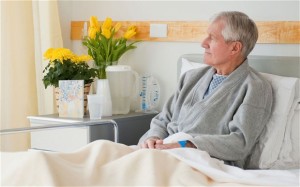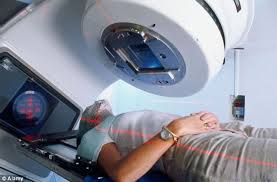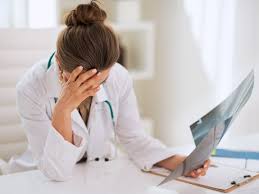How can I help myself cope with cancer
How can I help myself cope with cancer: The Attitude and Beliefs?

How can I help myself cope with cancer? By practicing moderate exercise and seeking for professional opinion
People value the care they get from their cancer care team, but many also want to take an active role in dealing with their illness. Dr. Dalal Akoury the MD and founder of AWAREmed Health and Wellness Resource Center has been in the medical practice for well over two decades and she is going to help us in putting this question “how can I help myself cope with cancer?” into perspective. She says that for a better understanding of these concerns, it is important to segment the useful ideas on coping with cancer in to two categories. The divisions is based on attitudes and beliefs that clearly are beneficial (and she calls them the Do’s) and those that are harmful (which she referred to as the Don’ts). The following are some of the doable.
How can I help myself cope with cancer: The Doable Attitudes?
Only go for those coping ways that have been helpful for you in the past in solving problems – It is important to note that everyone will only want to associate with those people who will add value to their lives. Therefor be selective and only go for those whom you will feel comfortable sharing and talking with about your illness freely. In the event that you can’t talk to anyone, you could opt for meditation, relaxation or listening to music as alternatives of calming you down. Do what it takes and only apply what has worked for you before and in the unlikely event that nothing works and coping is becoming difficult, then at this point getting professional help becomes necessary.
Deal with cancer “one day at a time – For effective dealing with cancer, it is very important that you keep distance from elements of worries. The business of coping with cancer will be less tasking when broken into smaller units which are manageable. By doing this, you will be able to handle your daily objectives.
Register for support and self-help groups – Only associate with value additions groups and leave any group that makes you feel worse.
Find a doctor who lets you ask all your questions – In the journey of answering this question “how can I help myself cope with cancer?” it will be very important that you in all your association there must be the feelings of mutual respect and trust. Always insist on being a partner in your treatment. Doing this will enable you to be informed of the problems you are likely to face before they come, and addressing them will become even easier.
Explore spiritual and religious beliefs and practices, such as prayer, that may have helped you in the past – If you don’t consider yourself a religious or spiritual person, get support from any belief systems that you value. This may comfort you and even help you find meaning in the experience of your illness.
Keep a personal notebook of your doctors’ numbers, dates of treatments, lab values, x-rays, scans, symptoms, side effects, medicines, and general medical status – Information about the cancer and your treatment is important to have, and no one can keep it better than you.
Keep a journal if you find a need to express yourself without holding back – It can help you process the journey, and you may be amazed by how helpful it can be.
How can I help myself cope with cancer: The Don’ts Elements?
- Believe the old saying that “cancer equals death – remember that many cancer survivors are healthy today thereby disqualifying this statement.
- Blame yourself for causing your cancer – There is no scientific proof linking certain personalities, emotional states, or painful life events to getting cancer. Even if you may have raised your cancer risk through smoking or some other habit, it does not help to blame yourself or beat yourself up.
- Feel guilty if you can’t keep a positive attitude all the time, especially when you don’t feel well – The saying “you have to be positive to beat cancer” is not true. Low periods will come, no matter how great you are at coping. There is no proof that those times have a bad effect on your health or tumor growth. But if they become frequent or severe, getting professional help would be ideal.
- Suffer in silence – Make cancer a communal problem and refuse to struggle with it alone. Get support from your family, loved ones, friends, doctor, clergy, or those you meet in support groups who understand what you are going through. With these supports, you are certainly going to cope better.
- Be embarrassed or ashamed to get help from a mental health expert – If it becomes necessary to seek for the services of a mental specialist for conditions like anxiety or depression that disrupts your sleep, eating, ability to concentrate, ability to function normally, or if you feel your distress is getting out of control, don’t feel embarrassed and proceed boldly.
- Abandon your regular treatment for an alternative therapy – If you use a treatment that your doctor didn’t recommend, use only those that you know do no harm. Find out if the treatment can be safely used along with your regular therapies to improve your quality of life. Psychological, social, and spiritual approaches are helpful and safe, and medical professional across the board are encouraging the use of such treatment modes. As we had mentioned things like relaxation and meditation are good ways to deal with distress.
How can I help myself cope with cancer: Other coping methods: Exercise
Doctor Akoury says that exercise is not only safe for most people during cancer treatment, but it can also help you feel better. Moderate exercise has been shown to help with tiredness, anxiety, muscle strength, and heart and blood vessel fitness. And in fact most people with cancer can do some form of exercise. Like for instance, walking is a good way to get started and a good way to keep moving when you are feeling stressed. Remember that with cancer involve not all cancer patients can be engaged in all types of exercises. Get the opinion of your doctor about your exercise plans before you start. Keep in mind that even though exercise may help lower distress levels in some people, exercise alone is usually not enough to help people with moderate to severe distress. Therefore, for comprehensive health information about our discussion topic “how can I help myself cope with cancer?” schedule for an appointment with doctor Dalal Akoury today and your healthy will never be the same again.
How can I help myself cope with cancer: The Attitude and Beliefs?




